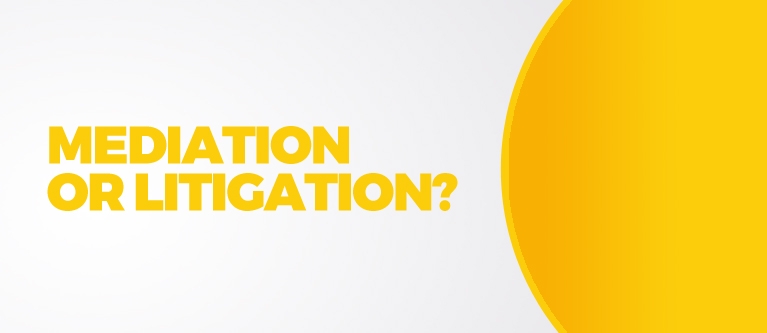by Howard Nulty
Having been brought up to issue Court action at the drop of a hat, seeing the advantages of mediation has been an eye opening experience.
When I first qualified there were no protocol periods and no detailed letters of claim. The insurers had 14 days and then we issued Court action even before we had a medical report. Insurers routinely settled cases and then the Court decided that we had to have a medical report before we could issue and then they wanted statements and then protocols. Cases nowadays are so front loaded that costs are shooting through the roof even before the defence has been filed.
Boundary disputes, will disputes and just about any dispute going through the Court process is a very expensive experience. The other problem about Court hearings is usually there is a winner and a loser. If you win you usually are awarded your fees but if you lose it can cost a substantial sum even for the smallest of cases.
Avoiding stressful litigation can be achieved by mediation. Lots of solicitors even now respond to offers of mediation like you have suggested witchcraft! It is all down to knowledge. Solicitors who are trained in dispute resolution don’t fear mediation – they embrace it. For perhaps the first time you can sit down with your opponent and see the whites of his eyes and chat through the dispute. A good mediator will not only be looking for a way of resolving the dispute, but will be looking for a solution that gives something to both parties if possible. It might only be a reduction in costs, or a shortened process. But both parties can benefit from mediation whereas at court only one wins.
For instance, recently on a boundary dispute over a patch of land between two houses, the claimant and defendant were spending thousands on a piece of ground that neither even knew existed until a shed was moved. A mediation quickly established that the piece of land was important, as it allowed each party to access their garages at the back of the house. The mediation resulted in a shared driveway and an agreement as to maintenance between them. The process was completed for a fraction of the Court fees and also the parties were able to utilise the savings to have the drive laid down. No Court would ever have arrived at that resolution. Stress avoided. Costs avoided. Time saved.
Are we seeing the end of the litigation process? I think that the short answer is no. One of the factors that will drive a mediation is the alternative. Telling participants as to the costs of the alternative is a great way of bringing parties to their senses. Although there will always be someone who wants to “see you in court”.
Click here for more information on our mediation services, or click here to get in touch with our expert team


